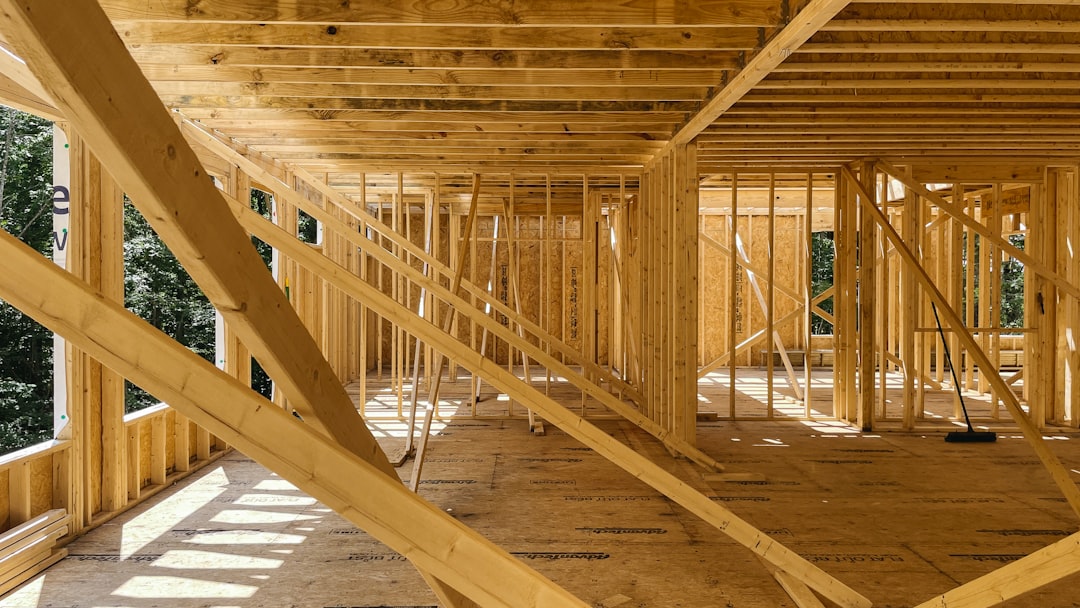Crawl Space RI Solutions for Dry, Healthy Homes
Price source: Costs shown are derived from our proprietary U.S. construction cost database (updated continuously from contractor/bid/pricing inputs and normalization rules).
Eva Steinmetzer-Shaw
Head of Marketing
Crawl Space Encapsulation Costs in Rhode Island
Encapsulation costs in Rhode Island typically range from $5,000 to $15,000, depending on factors such as barrier thickness, access constraints, and insulation upgrades. Accurate cost estimation is crucial for trade professionals to avoid overestimating expenses.
Why Crawl Spaces Matter in Rhode Island Homes
Between Narragansett Bay humidity, Nor’easter rain, and the freeze-thaw cycle, Rhode Island is brutal on below-grade construction. A damp or unsealed crawl space invites mold, wood rot, energy loss, and even structural settlement. Specializing in residential crawl space upgrades, we protect the envelope, lower utility bills, and add resale value—backed by AI-powered estimating that keeps surprises off your invoice.
Common Crawl Space Challenges We Solve
- Standing water after heavy rain events
- Condensation on joists and HVAC ductwork
- Musty odors and airborne allergens migrating into living areas
- Sagging sub-floor due to fungal decay
- Elevated radon readings or pest intrusion
Each issue demands a tailored fix, not a one-size-fits-all kit. Our portal lets you build an itemized scope—vapor barrier, drainage matting, sump pump, dehumidification, or full encapsulation—while our AI engine updates labor and material costs in real time.
The Crawl Space Encapsulation Process
- Voice-Enabled Site Walkthrough: Using our mobile app, project managers record dimensions, soil conditions, and existing insulation—all transcribed into takeoff data.
- Instant AI Estimate: Within minutes, receive a detailed line-item proposal. Prices are synced with local supplier feeds, ensuring current market rates.
- Blueprint Integration: Upload plans and let the AI trace joist bays, pier spacing, and vent openings for pinpoint accuracy.
- Field Execution: Certified installers deploy the chosen system—6-, 10-, or 15-mil reinforced vapor barrier mechanically fastened to foundation walls and sealed at seams with butyl tape.
- Post-Project Reporting: Receive moisture-meter readings, photo documentation, and warranty certificates in a digital closeout packet.
Cost Drivers Specific to Crawl Space Projects
- Barrier Thickness: Coastal zones may need thicker liners due to higher water tables.
- Access Constraints: Tight hatchways or interior stairs add labor time compared to exterior openings.
- Permitting: Some municipalities require vapor barriers for new builds; we handle filings and inspector walkthroughs.
- Insulation Upgrades: Pairing encapsulation with R-10 rigid foam on stem walls improves HERS scores, often unlocking utility rebates.
Energy & Health Benefits of Proper Encapsulation
- 15–20% HVAC energy savings by eliminating damp air exchange
- Up to 98% mold spore reduction verified through third-party air tests
- Warmer hardwood floors in winter thanks to stabilized sub-floor temperature
- Higher appraised value—home inspectors increasingly call out unsealed crawl spaces as a defect
Five Pro Tips for Rhode Island Professionals
- Choose a liner with low perm rating; cheap 3-mil plastic tears during installation
- Add a perimeter French drain before encapsulation if hydrostatic pressure is evident
- Seal rim joists with closed-cell spray foam to block humid coastal air
- Install a Wi-Fi hygrometer to monitor relative humidity remotely
- Schedule annual inspections; minor punctures are quick fixes when caught early
How AI Makes Budgeting Transparent
Traditional estimators rely on historical averages that lag behind price spikes. Our algorithm pulls:
- Live material feeds from regional suppliers
- Labor productivity rates adjusted for crawl space height and soil type
- Permitting fees by municipality, updated quarterly
This data populates your digital proposal, eliminating padded contingencies.
Case Study: South Kingstown Coastal Cottage
The owner of a 1950s cottage faced buckling pine flooring and a 70% crawl space humidity reading. They used our consultation for a same-day virtual walkthrough.
Scope Selected:
- 15-mil reinforced vapor barrier
- Continuous perimeter drain to an existing sump
- 70-pint Energy Star dehumidifier with condensate pump
Total Project Cost: $7,960—8% below the homeowner’s budget, thanks to AI material sourcing. Post-work humidity dropped to 43%, and heating bills fell by $32 per month.
Ready to Protect Your Crawl Space?
Transform a wet, energy-draining crawl space into a sealed, conditioned zone that boosts comfort and resale value. Start with a free voice-enabled estimate today.
Digging Deeper: What Sets Us Apart
Professionals often ask why our crawl space projects outperform traditional contractors. The answer lies in three pillars: data accuracy, integrated workflows, and post-project accountability.
Data Accuracy
- Live Pricing: Our AI engine syncs every 15 minutes with distributors. If vapor barrier rolls drop by 4%, that savings is reflected instantly on your estimate.
- Predictive Labor Modeling: Crew hours are calculated using historic productivity curves adjusted for crawl height, foundation material, and access points.
Integrated Workflows
- Voice-to-Estimate: Field notes captured verbally convert to measurable line items—no clipboard transcription errors.
- Blueprint Takeoff: Upload foundation plans and let the AI auto-calculate liner square footage, linear feet of seam tape, and corner terminations.
- Scheduling Sync: Once you approve the quote, our calendar API blocks out crew time and auto-orders materials for just-in-time delivery.
Post-Project Accountability
- Digital Closeout Package: Moisture readings, thermal images, and warranty PDFs stored securely for future refinancing or resale documentation.
- Maintenance Alerts: Our system pings you when filter pads in the crawl space dehumidifier approach replacement date.
Client Spotlight: Providence Federal Style Home
A 1901 brick-pier crawl space suffered chronic efflorescence. We recommended a heavy-duty 90-mil drainage mat topped with 10-mil liner, sealed to the brick with specialized masonry anchors. The AI estimate flagged a pending price hike on anchors, enabling the owner to lock in savings by approving within 48 hours—shaving $420 off material costs.
Next Steps
Ready for a crawl space that works with your HVAC system, not against it? Visit our consultation page or call our Providence office. Our AI will crunch the numbers; our certified crews will handle the rest.

